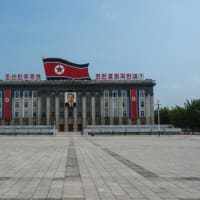
It is possible that IR is now so diluted and detached from the study of statecraft, foreign policy, and diplomacy that it is practically irrelevant, a danger, given that we are re-entering an era of great power rivalry.
The resignation in September of 2021 of Professor Beverly Gage from her role as head of the Brady-Johnson Program in Grand Strategy at Yale has put the academic study of international relations (IR) in the news. The Brady-Johnson program is one of the most prestigious in the field of international relations, conceived in 2000 by Nicholas Brady, a former U.S. Treasury Secretary, and Charles B. Johnson, a mutual fund billionaire, as a way to immerse students in the classic texts of history and statecraft. The program would also provide students access to prominent practitioners in government, diplomacy, and military affairs.
I would like tentatively to share the insights of Mr. Sumantra Maitra, a national-security fellow at The Center for the National Interest, and also a non-resident fellow at the James G. Martin Center and an elected early career historian member at the Royal Historical Society.
His commentary originally appeared in The National Interest on April 29.



















